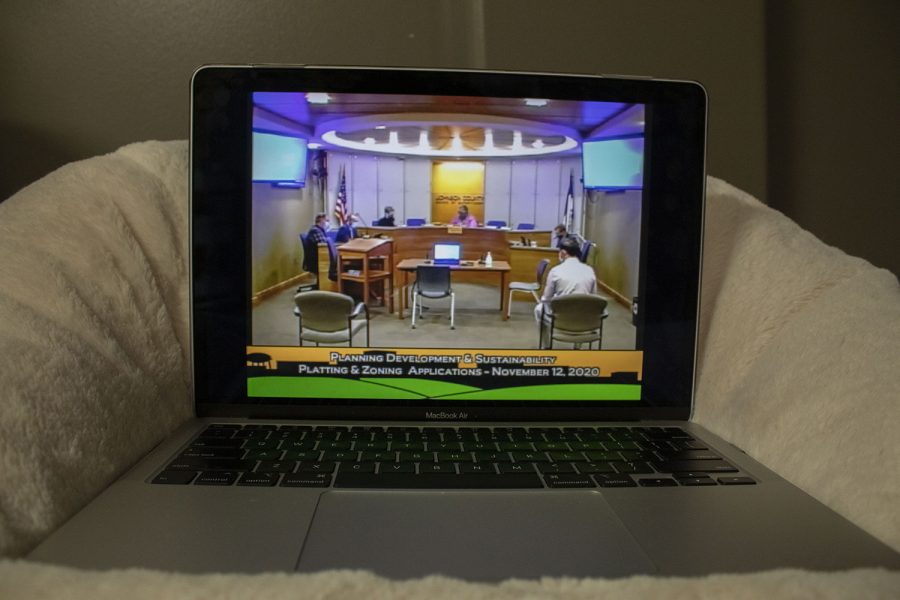Johnson County health officials expect vaccine rollout by Dec. 14 if approved
The COVID-19 vaccine will be rolled out in three separate phases, with preference given to health care providers and essential workers.
Johnson County holds a virtual meeting for the Board of Supervisors on Nov. 12, 2020.
December 2, 2020
The Johnson County Public Health Department is preparing for the COVID-19 vaccine to be available to certain populations within as little as two weeks, according to Emergency Preparedness Planner Stephen Button.
Two American pharmaceutical companies, Pfizer and Moderna, have both sent requests to the Food and Drug Administration for emergency approval of their COVID-19 vaccines. Pfizer’s request will be reviewed by the FDA on Dec. 10, while Moderna’s will be reviewed on Dec. 17.
“If approved, the CDC Advisory Committee on Immunization Practices will meet shortly after Dec. 10 and will vote on vaccine usage throughout the country,” Button said.
Then, he said, vaccines could be available for distribution as early as the week of Dec. 14.
The health department plans to distribute the COVID-19 vaccine in three phases, depending on the number of doses they have available. Phase one will be for essential workers and high-risk groups; phase two will be for critical populations such as college students and staff, minorities, and incarcerated people; and phase three will be open to the entire community.
Button said that essential workers include firefighters, police officers, teachers, health care providers and those who work in the energy and transportation sectors, and that high-risk groups will include anyone older than 55.
RELATED: Iowa hospital officials hopeful on vaccine, continuing surge plan
“I did see that in the CDC document that food and agricultural-type service workers are potentially in that phase one as well,” he said.
Both vaccines require two doses given 3-4 weeks apart to be effective, and both doses must be from the same vaccine.
“If you get a Pfizer vaccine you have to get your second dose as a Pfizer vaccine — you can’t interchange the two vaccines,” Button said.
Once the Centers for Disease Control and Prevention votes yes on a vaccine’s usage, vaccine stocks will then be allocated across the country based on a number of factors, including storage capabilities. The Pfizer vaccine must be kept in “ultra-cold storage” at temperatures lower than -70 degrees Celsius and given within 5 days of thawing. The Moderna vaccine, on the other hand, lasts for 30 days in refrigeration and can be stored at just -20 degrees Celsius.
“For outlying pharmacies that don’t have the capacity to store ultra-cold there’s additional planning considerations that once they’ve received this vaccine they have to give it fairly quickly,” Button said.
He added that the CDC is currently investigating whether the COVID-19 vaccine will need to be taken yearly like the flu vaccine, and that studies will continue even after the FDA approves the vaccines.
“Being the first wave of vaccines that ever rolls out we’re assuming there’s going to be some logistical delays that could potentially come,” the emergency expert said. “We’re planning and ready for it.”






